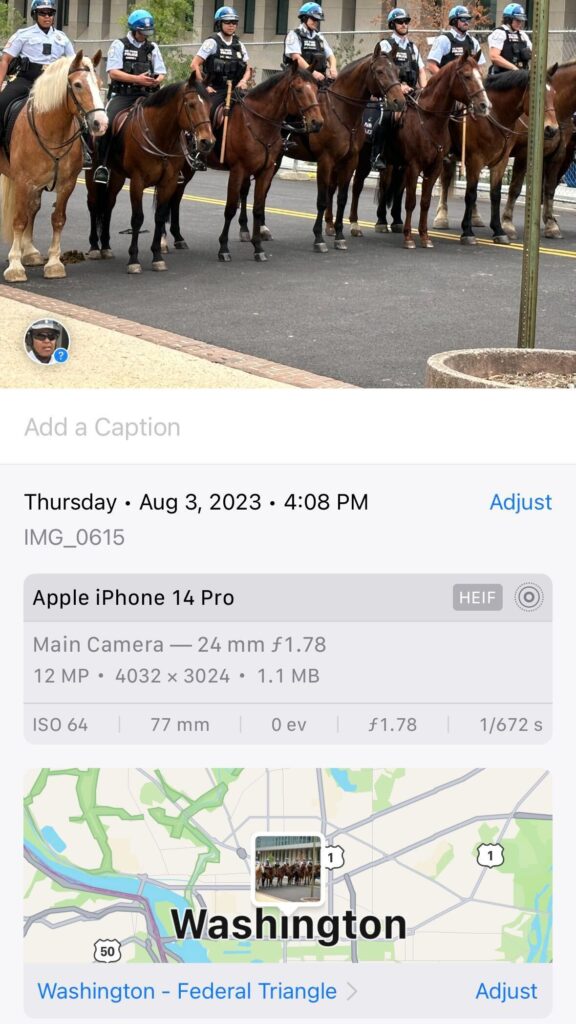Apple and Google should be held accountable for privacy violations
By: Steve Schuster, [email protected]//September 13, 2023//
Apple and Google should be held accountable for privacy violations
By: Steve Schuster, [email protected]//September 13, 2023//

There has certainly been no shortage of media headlines about the National Security Agency’s gathering of metadata in the interest of national security and protecting Americans in the wake of Edward Snowden leaking classified documents back in 2013 unveilng the Agency’s practices. Collection of metadata has been proven to be among NSA’s most useful tools in the war against terrorism.
For months, perhaps even years, headlines circulated about NSA’s data controversial collection practices, which in reality have saved millions of Americans lives through the use of legal tools and technology deployed through the use of Section 702 of the Foreign Intelligence Surveillance Act.
“What we’re doing is we’re collecting metadata to go after bad guys who use the same devices and the same equipment that we do. They hide amongst us to kill our people. Our job is to stop them without impacting your civil liberties and privacy. And so these programs are set up to do that, and I think – I think, from my perspective, we do a good job on it,” said General Keith Alexander, director, National Security Agency (NSA) and commander, United States Cyber Command in 2013 at the Aspen Security forum.
According to the National Security Agency, in the U.S. the FISA Court plays an important role in helping to ensure that signals intelligence collection governed by FISA is conducted in conformity with the requirements of the statute.
“All three branches of the U.S. Government have responsibilities for programs conducted under FISA, and a key role of the FISA Court is to ensure that activities conducted pursuant to FISA authorizations are consistent with the statute, as well as the U.S. Constitution, including the Fourth Amendment,” NSA officials said.
Metadata, which is basically data about data, is everywhere.
Using the latest Apple iPhone iOS version, if you swipe up on a photo you can see the date and time the photo was taken. If location is enabled, that is also visible, along with the type of camera used to take the photo, the Lense and resolution.

Yet, companies such as Facebook, Google and Apple take much more than just metadata of from American households, sell it for pure profit (not in the interest of our national security) and do so without much government regulation, at least as of the present.
Headlines about the private information that private sector companies compile rarely make headlines.
One such example of this is how Apple has been known for tracking your steps and selling that data to companies such as various BlueCross BlueShield licensees, who then use that data as a part of a formula to calculate how much health insurance premiums cost in certain geographic regions. In places like New York City, Washington, D.C., and Chicago, where more people walk and take public transportation, health insurance premiums maybe lower than places like Wisconsin, where most people drive to work.
If you’ve ever Googled “watches” or “shoes” on your work or home computer then later that day scrolled through Facebook on your phone, odds are you see ads for the same product. And it’s no coincidence.
Apple, like Google and Facebook, collect your personal data and use it to serve you personalized ads. In many cases this information is sold to third parties and in some cases the data gets into the hands of foreign countries, sometimes our adversaries.
Companies such as Apple also don’t make it easy to opt out. Often their algorithms are kept secret and there are often several specific advanced settings that need to be adjusted just to opt out of one method of data collection. For example, an iPhone user can click settings, then click privacy & security, then click location services (then scroll all the way to the bottom), then click system services, then click disable “significant locations.” Suffice it to say, there’s no one-click opt out of everything and still much of your data is being sold.
In 2021, The Tampa Bay Times reported Federal litigation arose over Google selling users’ personal data.
“Google is making a fortune by selling users’ personal information despite the company’s pledge that it never sells the data, a lawsuit filed this week claims,” The Tampa Bay Times article said.
Aside from the occasional headline and lawsuit, when are lawmakers and the mainstream media going to step up and hold companies like Google and Apple accountable and protect the rights of American citizens?
Legal News
- Wisconsin attorney loses law license, ordered to pay $16K fine
- Former Wisconsin police officer charged with 5 bestiality felony counts
- Judge reject’s Trump’s bid for a new trial in $83.3 million E. Jean Carroll defamation case
- Dozens of deaths reveal risks of injecting sedatives into people restrained by police
- The Latest: Supreme Court arguments conclude in Trump immunity case
- Net neutrality restored as FCC votes to regulate internet providers
- Wisconsin Attorney General asks Congress to expand reproductive health services
- Attorney General Kaul releases update at three-year anniversary of clergy and faith leader abuse initiative
- State Bar leaders remain deeply divided over special purpose trust
- Former Wisconsin college chancellor fired over porn career is fighting to keep his faculty post
- Pecker says he pledged to be Trump campaign’s ‘eyes and ears’ during 2016 race
- A conservative quest to limit diversity programs gains momentum in states
WLJ People
- Power 30 Personal Injury Attorneys – Russell Nicolet
- Power 30 Personal Injury Attorneys – Benjamin Nicolet
- Power 30 Personal Injury Attorneys – Dustin T. Woehl
- Power 30 Personal Injury Attorneys – Katherine Metzger
- Power 30 Personal Injury Attorneys – Joseph Ryan
- Power 30 Personal Injury Attorneys – James M. Ryan
- Power 30 Personal Injury Attorneys – Dana Wachs
- Power 30 Personal Injury Attorneys – Mark L. Thomsen
- Power 30 Personal Injury Attorneys – Matthew Lein
- Power 30 Personal Injury Attorneys – Jeffrey A. Pitman
- Power 30 Personal Injury Attorneys – William Pemberton
- Power 30 Personal Injury Attorneys – Howard S. Sicula












